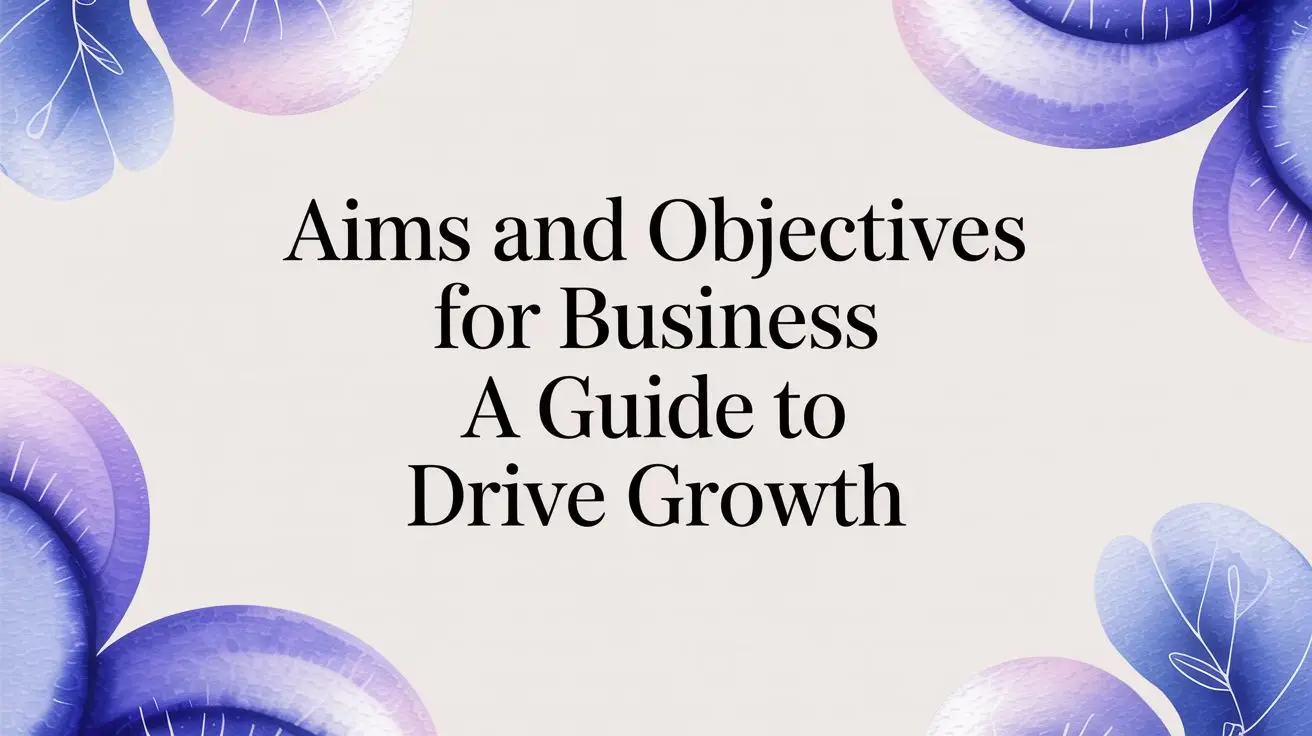When growth accelerates, alignment matters more than ever.
OKRs help People and Ops leaders scale with focus aligning teams, building rhythm, and embedding the right habits early.
When scale reveals the cracks
In fast-growing companies, the chaos of growth often leads to fragmented priorities, duplicated efforts, and unclear ownership. People and Ops leaders are the ones trying to hold it all together. OKRs provide the structure to scale helping you align teams around what matters most, without resorting to top-down micromanagement.
- Rapid growth is creating misalignment across functions
- The team is scaling, but processes and priorities aren’t
- You’re constantly resetting focus, but it doesn’t stick
- Ops are reactive you need a rhythm and framework to drive performance
How we help People & Ops leaders bring order without losing momentum
As your scale-up grows, so do the moving parts. Our OKR Focus Flow helps People and Operations leaders introduce just enough structure to keep teams aligned and focused without creating red tape or slowing the pace.
It’s not just about rolling out OKRs. It’s about embedding an operating rhythm that keeps people, priorities, and performance connected as you scale.
- Diagnose: Surface misalignments, focus gaps, and team bottlenecks
- Design: Shape OKRs that reflect real business drivers across hiring, GTM, and product
- Deploy: Roll out OKRs in a way that sticks, with scalable rituals and lightweight tools
- Drive: Reinforce habits that help teams prioritise, deliver, and collaborate more effectively
- Deepen: Build internal capability to keep momentum up as the business grows
Get ahead of chaos, without killing autonomy
OKRs give fast-growing teams the clarity they need to move quickly — without constant escalation or chasing alignment.
Create visibility across functions, fast
With OKRs in place, you can spot risks, bottlenecks, and misaligned efforts early and solve them before they scale.
Make performance reviews and planning easier
Turn vague updates into focused conversations. Use OKRs to anchor check-ins, reviews, and growth planning.
Scale alignment with minimal overhead
No clunky platforms or top-down mandates just a shared rhythm that helps everyone row in the same direction.
Want to see how OKRs could work for you?
Download our free OKR Launch Guide for Scale-ups, a practical workbook with tips, examples, and pitfalls to avoid when introducing OKRs in a high-growth environment.
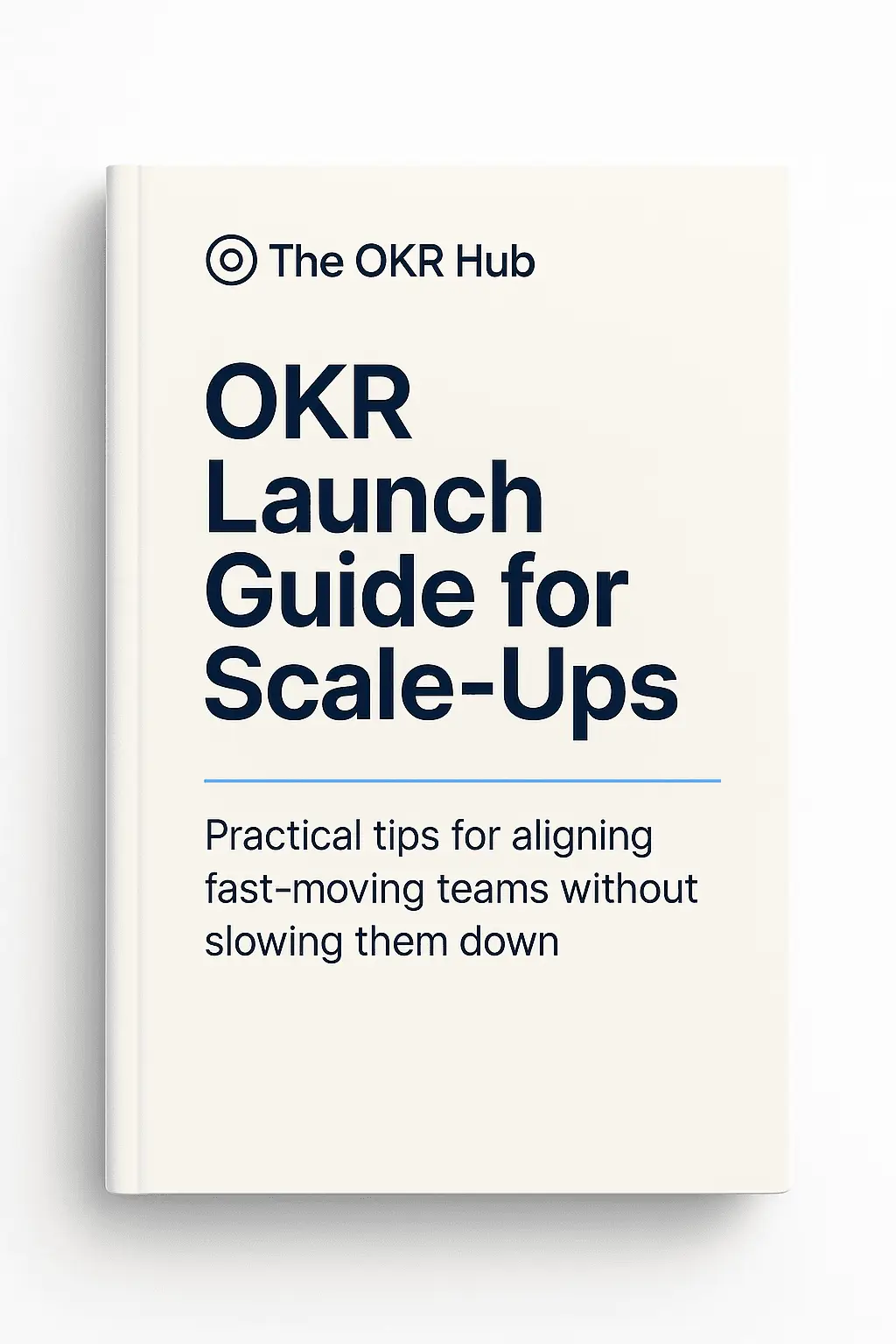
Most OKRs fail, not because of the framework, but because they’re not done well.
OKRs promise clarity, alignment, and focus, but too often, they become empty rituals. Without the right setup, support, and internal capability, teams struggle to gain traction. That’s why more than half of all OKR rollouts fail.
Explore our expert resources to avoid the pitfalls and unlock OKRs that actually deliver.
OKR Failure Rates
More than 60% of organisations struggle with setting effective OKRs, leading to failure in adoption.
(OKR Benchmark Report 2023)

DIY OKRs fall short
Only 1 in 5 organisations succeed with OKRs without external support, training, or coaching.
(WorkBoard)
Expert Guidance
Enterprises that invest in professional OKR training see a 25% improvement in alignment and goal tracking.
(Gartner)

How We Deliver High-Impact OKR Training
Our training isn’t about lectures and slides it’s about real learning that sticks.
Using the 4C’s model (Connection, Concept, Concrete Practice, Conclusion), we create high-energy, hands-on sessions where participants learn by doing, sharing, and applying.
Experiential Training, Not Just Theory
We create interactive learning environments where people connect with the material and each other. From day one, participants are engaged in group activities, OKR writing, and scenario-based practice that’s directly relevant to their work.

Connection
We start by linking OKRs to each participant’s role and reality building immediate relevance and shared understanding.
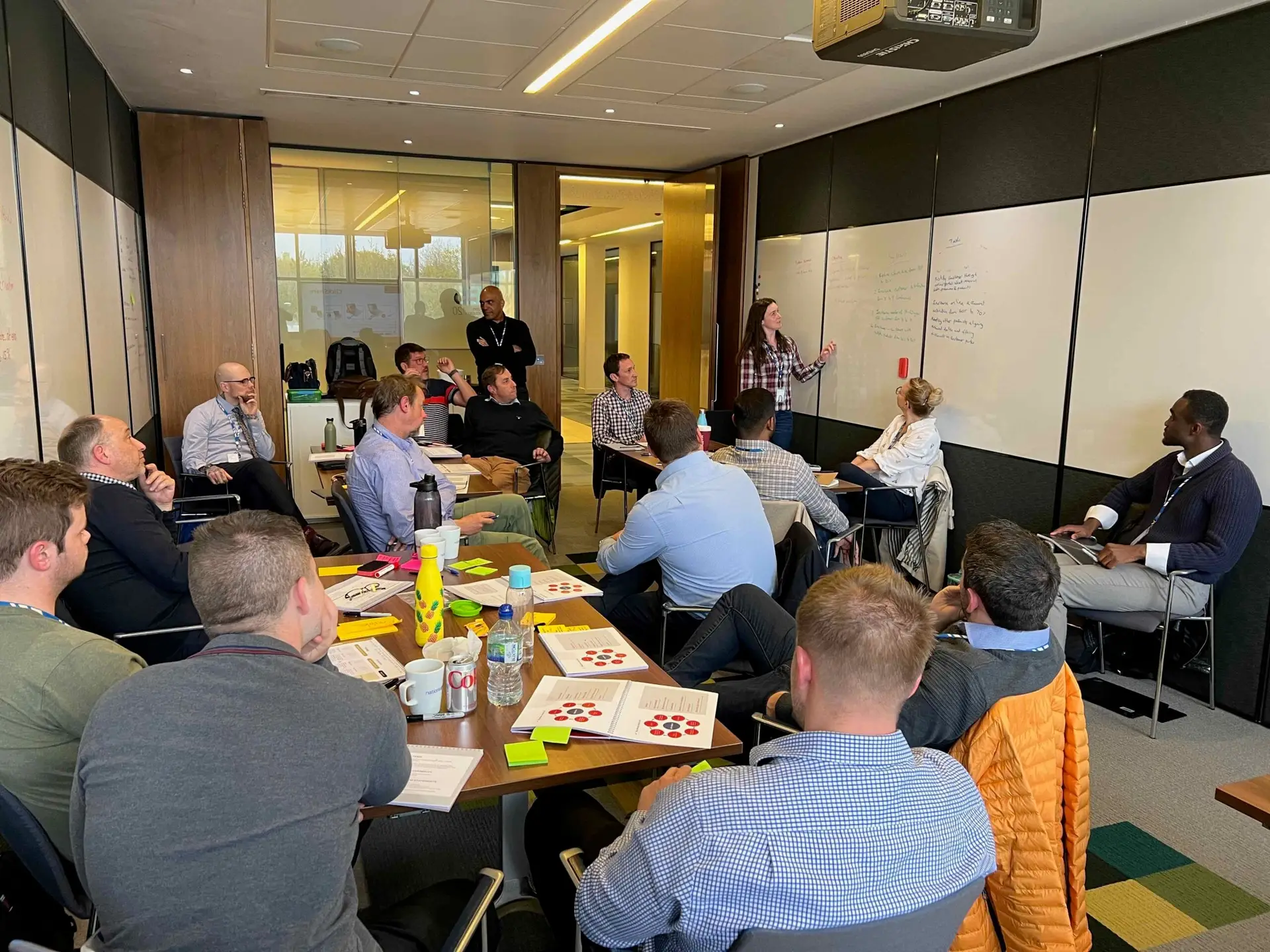
Concept
Next, we introduce the core OKR principles through simple models, memorable metaphors, and real-world examples.
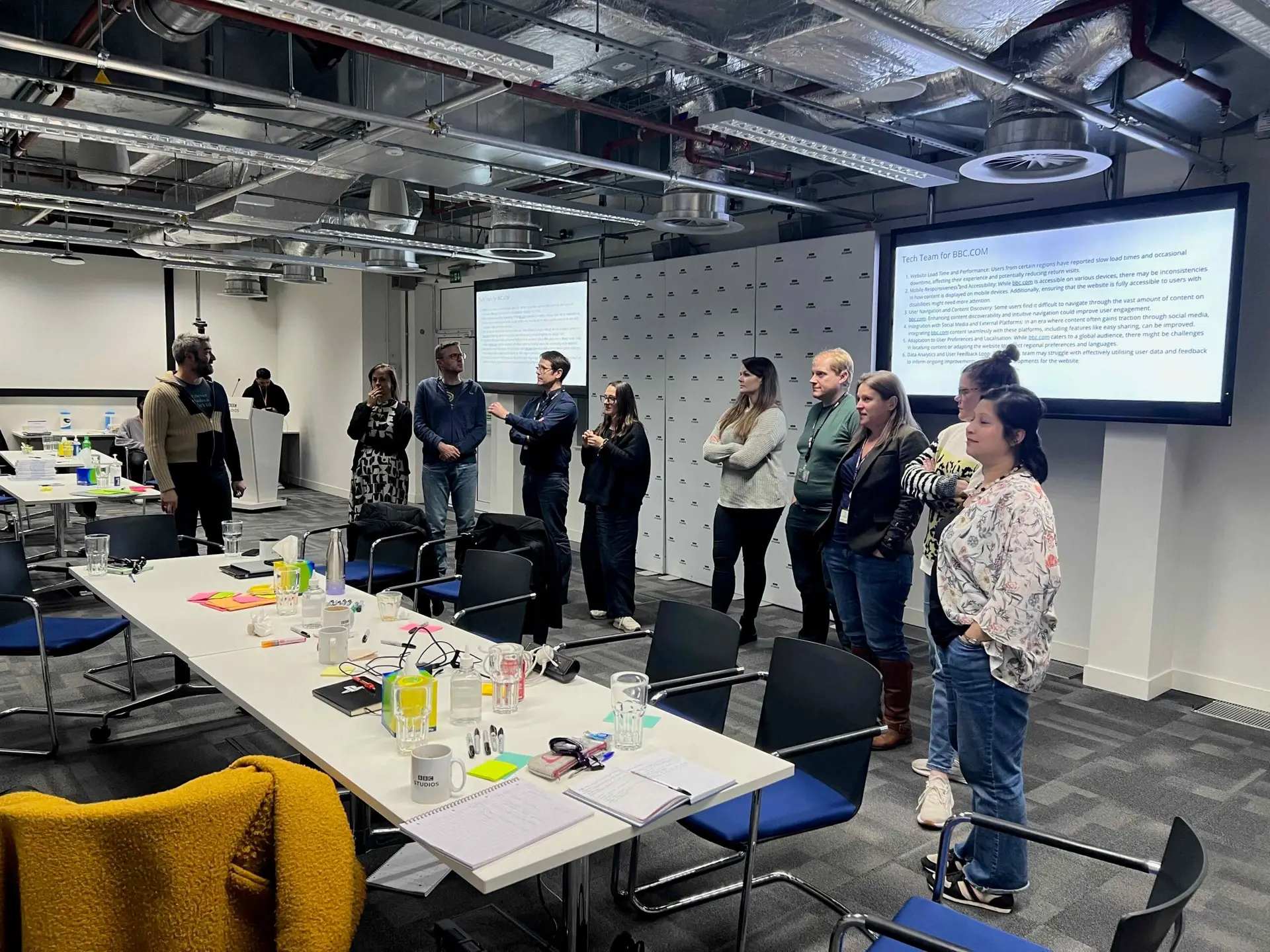
Concrete Practice
Participants immediately put their learning into action by writing, reviewing, and improving OKRs in small groups.
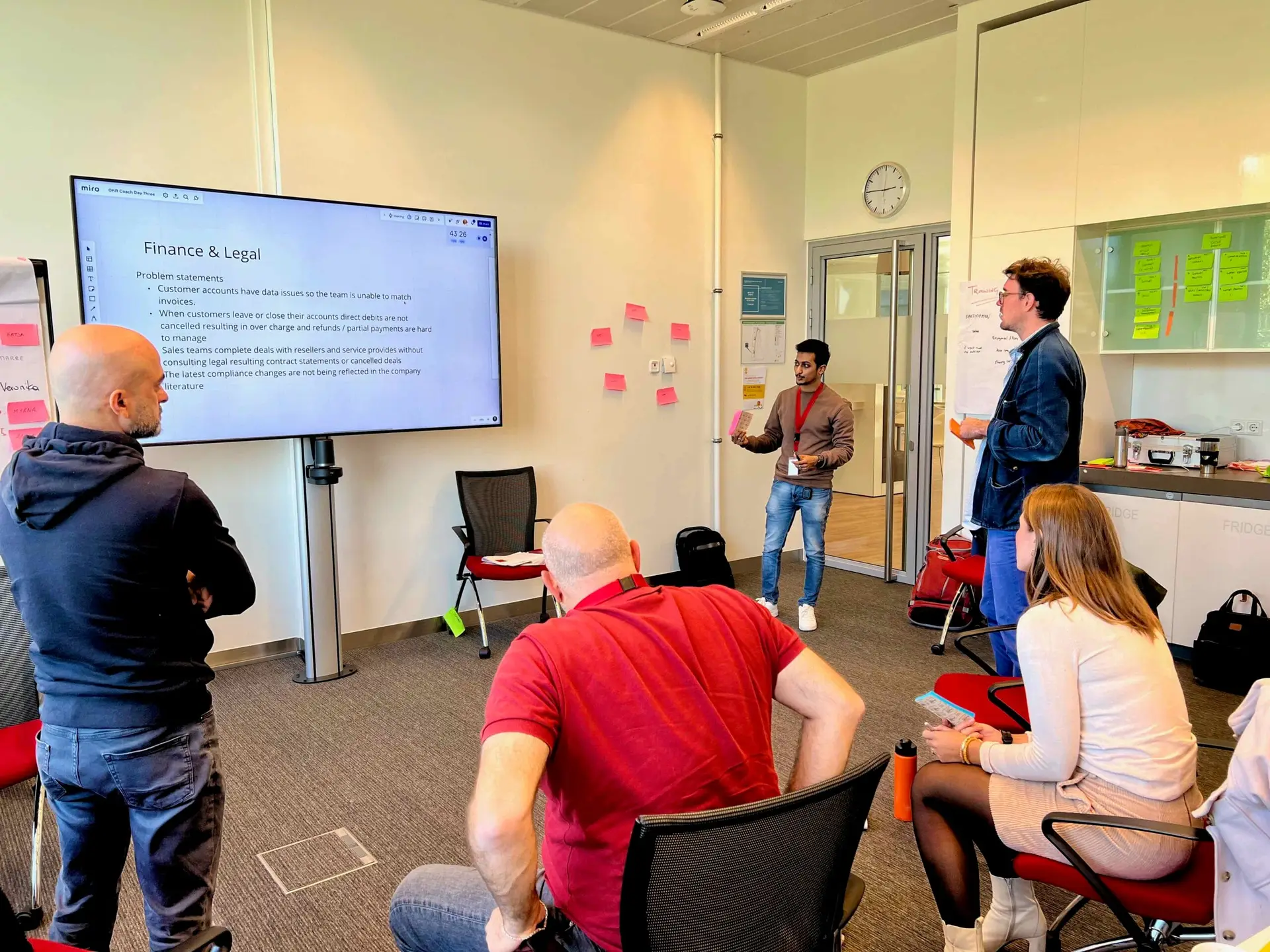
Conclusion
Each session ends with reflection, practical takeaways, and clear next steps in preparation for real-world application.
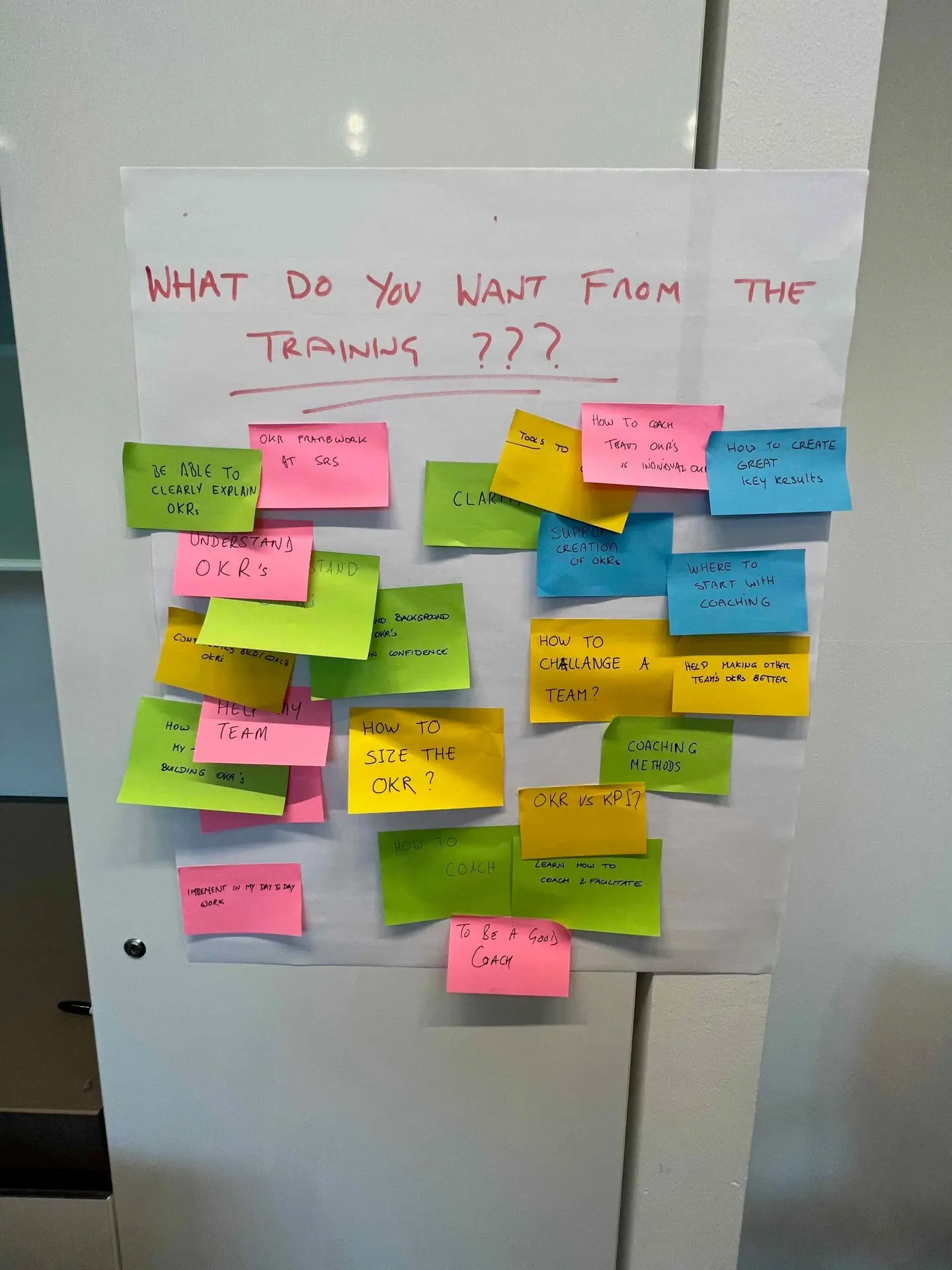
Common OKR challenges we can address
Navigating OKR implementation can be complex.
Here are the common challenges we work with our clients to solve.
Vague or Task-Based OKRs
Problem: Teams often create OKRs that resemble task lists rather than focusing on impactful outcomes.
Solution: We teach patterns and techniques to help teams consistently craft outcome-oriented OKRs.
Unclear Ownership and Accountability
Problem: Ambiguity in OKR ownership can result in lack of accountability and follow-through.
Solution: We teach Teams how to create and define clear ownership structures, ensuring each OKR has an accountable individual or teams.
Inconsistent Quality Across Teams
Problem: Variability in OKR quality between teams can hinder organisational cohesion and performance.
Solution: Training everyone to a standard approach ensures consistency and shared understanding.
Setting and Forgetting OKRs
Problem: Establishing OKRs without regular review can lead to stagnation and missed opportunities for adjustment.
Solution: We’ll share an OKR execution process, including events and agendas that enables teams to undertake regular check-ins and reviews to keep OKRs dynamic and responsive to change.
Confusion Between OKRs and KPIs
Problem: Misunderstanding the distinction between OKRs and KPIs can blur performance tracking and goal setting.
Solution: We clarify the roles of OKRs and KPIs, ensuring each is used appropriately to measure success.
Absence of Regular OKR Cadence
Problem: Without a structured cadence, OKR processes can become disjointed and ineffective.
Solution: We help teams to understand what a consistent OKR cycle is, including planning, review, and retrospective phases.
Dependence on External Facilitation
Problem: Relying solely on external consultants for OKR processes can be unsustainable.
Solution: We empower your internal teams with the knowledge and tools to manage OKRs independently.
Lack of Confidence in OKR Creation
Problem: Teams may feel uncertain about formulating effective OKRs due to lack of experience or knowledge.
Solution: We use the 4C’s approach to improve learning and provide scenario based learning opportunities.
Confusion Around OKR Tools & Systems
Problem: Teams invest in OKR platforms without the knowledge to use them effectively leading to underuse, frustration, or misalignment between the tool and how teams actually work.
Solution: We provide tool-agnostic guidance and training on popular OKR systems helping you choose the right platform, set it up correctly, and train your teams to get real value from it.
Lack of Post-Training Support
Problem: Many organisations complete OKR training but struggle to embed the practice without continued guidance. Teams are left asking, “What now?”
Solution: We provide hands-on post-training support, including OKR coaching, feedback sessions, and rollout planning.
Still have questions?
Still unsure about the right OKR training for you? Get in touch, and we’ll guide you in the right direction.
Latest Insights & Articles
Fresh Thinking to Elevate Your OKR Game
Let's have a chat
What to speak with an OKR Hub expert?
Book a free consultation today.


